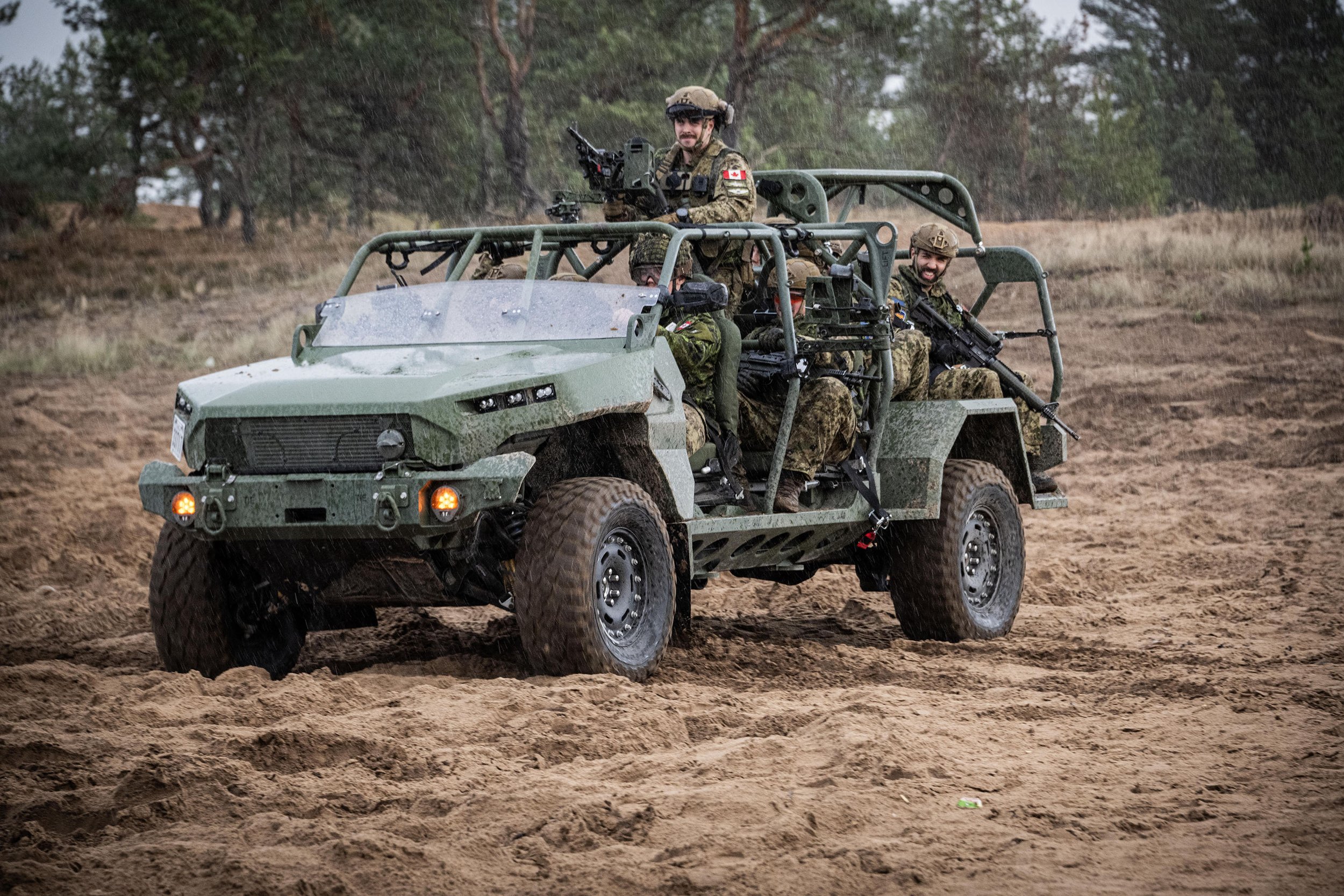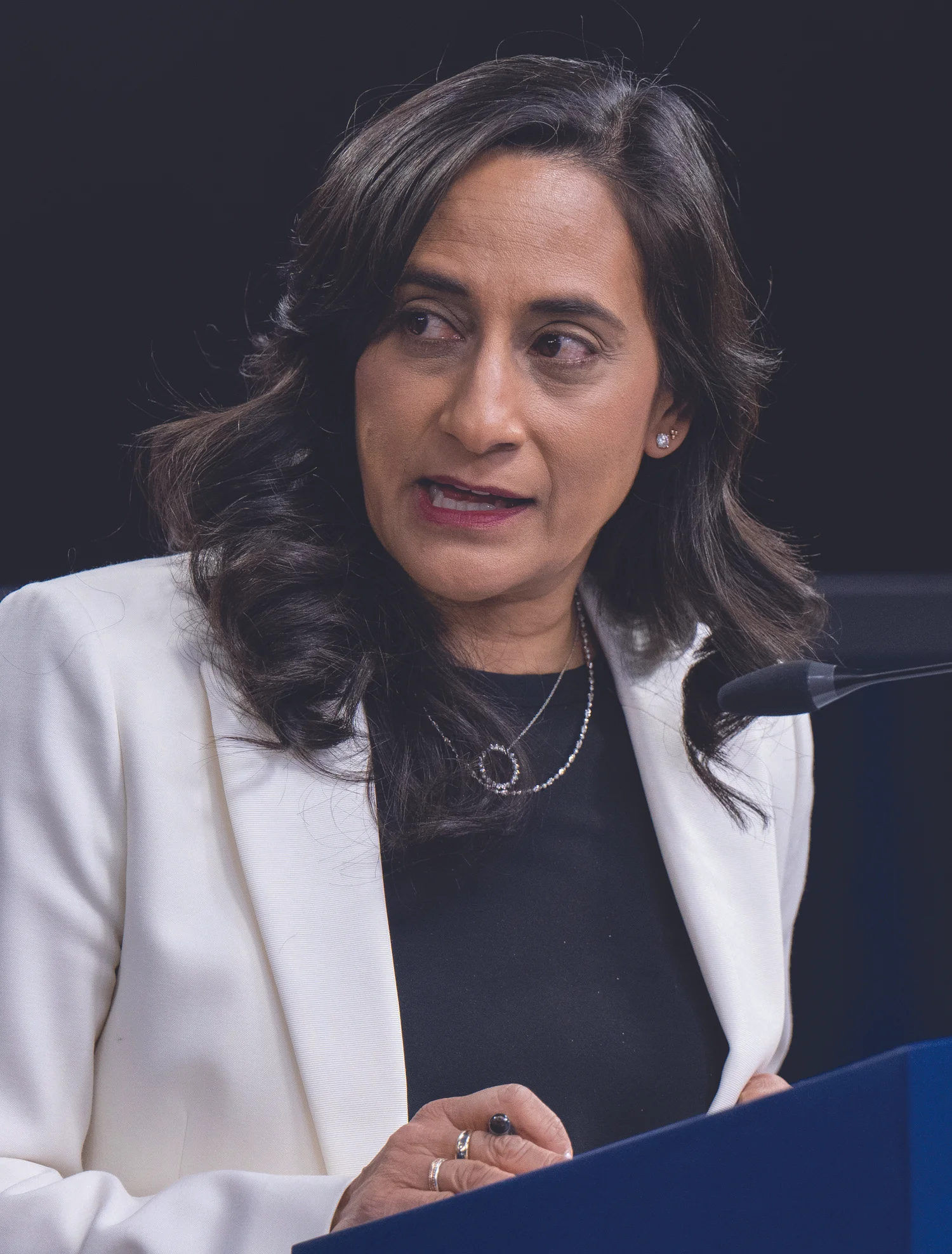By Newell Durnbrooke
Canada’s Nazi war criminal problem is once again coming back to haunt and embarrass the Liberal government, as well as Canadians.
Now there are allegations that the federal government and Library and Archives Canada are trying to coverup details about a list of alleged Nazi war criminals who came to this country.
Just a little more than a year ago- in late September 2023 - all MPs in the House of Commons were on their feet cheering war veteran Yaroslav Hunka. Hunka was praised as a “hero” and he was thanked by the speaker of the House of Commons for his military service.
One problem – Hunka served in a Ukrainian Waffen SS division fighting for the Nazis. And just a quick history lesson for all those MPs who appear to be clueless – Canada fought against the Nazis.
What became known as the Hunka scandal turned into an international embarrassment for Canada as Holocaust historians, Jewish groups and the Polish government pointed out Hunka’s unit had been involved in war crimes, including massacres of women and children. (As reported by the Ottawa Citizen, there is no evidence Hunka, now 99, was directly involved in those incidents).
Now we have another scandal brewing at the Library and Archives Canada, or LAC, over a list of alleged Nazi war criminals who came to this country. Media outlets outlined how that list of some 900 names was compiled in 1986. The document was put together by the federal government war-crimes commission led by Justice Jules Deschenes.
Many of the alleged war criminals are believed to be originally from Ukraine and other eastern European nations.
The records have been requested under the Access to Information law and LAC still has to decide whether to release the documents to the public.
In June and July 2024, LAC staff embarked on what is being described as a very dubious process. They consulted with a “discrete group of individuals or organizations” about whether the list should ever be made public. Details about who specifically were consulted are secret but it’s clear from media reports that many of those who provided advice were from the Ukrainian community and possibly the eastern European diaspora. In other words, the communities whose members are likely on the list of alleged war criminals in Canada.
Holocaust survivors and Holocaust academics who advocate for a full release of the list were excluded from the proceedings.
This was a colossal failure on the part of LAC staff and those exclusions have now fueled concerns in some quarters that a coverup in under way…or at least that significant efforts are being made by LAC and the Liberal government to keep this list secret.
It was also not surprising many of the “discrete group” of advisors told LAC staff the list of names of alleged Nazi war criminals should not be released.
They claimed that such action could result in criminal prosecution of the alleged crimes. They also worried that the list could prove to be embarrassing to the Canadian government and the Ukrainian community in general. In addition, they raised concerns the list might be used by Russian president Vladimir Putin for propaganda purposes. (On that last point, if these alleged criminals had been dealt with decades ago there would be no propaganda value for Putin and his ilk).
What was behind LAC’s secret discussions with a select group?
Historian John-Paul Himka, professor emeritus at the University of Alberta who has extensively researched the Holocaust in Ukraine and is an expert on the Ukrainian SS Galicia Division, was among those not invited to participate in the consultation, the Globe and Mail reported.
“After World War II, many Ukrainians who had one way or another collaborated in the crimes of the German occupation retreated westward, fearing repression by the returning Soviet regime,” he told the Globe when asked about the secret LAC meetings. “Many later migrated to Canada, where they and their descendants have dominated the organized Ukrainian diaspora community. They have done everything in their power to distort and suppress the historical record. It is hardly surprising that they wish to keep the investigation into a dark history under wraps.”
Professor Jared McBride, a U.S.-based specialist on Ukrainian Nazi collaborators, outlined in the Ottawa Citizen newspaper how this secrecy is simply going to backfire on LAC and the Canadian government. He pointed out that his researchers using now declassified American government records and other material have already compiled a list of 275 war criminals likely contained in the Canadian records. More names are expected to be added through additional research in the fall.
“Whether LAC likes it or not, these names are going to be released to the public,” said McBride.
McBride also questioned the Canadian government’s continued secrecy. Like Himka, he too outlined how LAC consulted with the very people who want these records to remain secret.
The Ukrainian Canadian Congress says it plans to go to court to stop the federal government from making public the names of alleged Nazi war criminals.
The UCC may ultimately be successful in keeping the list secret through their legal action.
But again, that will only backfire as Canadians will always wonder what was being kept hidden from them.
Were Ukrainians who settled in Canada after the war among those who led Jews to the Nazi killing pits? Did that nice Latvian gentleman down the road serve as a guard at a concentration camp? Did the elderly Estonian man who ran the corner store in Toronto help the Nazis round up and torture Jews to death?
The move by the UCC to prevent the list from being made public will also provide Putin’s criminal regime a major propaganda win. The Russian president will be able to claim that Canada is so scared about who might be on the list that they decided to keep the records secret.
There are already false claims circulating from some in the Canadian-Eastern European community that the Deschenes Commission exonerated the 900 individuals after carefully examining all their files. That’s not true.
In the comment section of the Ottawa Citizen, Royal Military College professor Lubyomyr Luciuk, a strong defender of the Ukrainian Waffen SS and some Ukrainians who collaborated with the Nazis, stated the Deschenes Commission report only included the “names of the ‘subjects (not suspects).”
But why would Luciuk claim that?
This ongoing battle is about making public the Deschenes Commission section called “Master List of alleged war criminals resident in Canada with a list of sources.”
It is actually titled “alleged war criminals.” Not subjects or suspects.
Luciuk also claimed each of the cases “were closed after each case was examined carefully.”
But the commission never conducted separate detailed investigations into the hundreds of individuals alleged to be war criminals, as news media outlets accurately pointed out. Inquiry researchers also determined that because of inadequate government screening after the war “it would be rash to assume that significant numbers of war criminals and Nazi collaborators did not enter Canada.”
(That last sentence is a direct quote from the commission report).
If there are or were Nazi war criminals hiding in our country, then Canadians have a right to know.
We lost 45,000 soldiers fighting the Nazi scourge during the Second World War. So why protect those who fought against our country and enabled the Holocaust?
(Opinion/analysis)





























